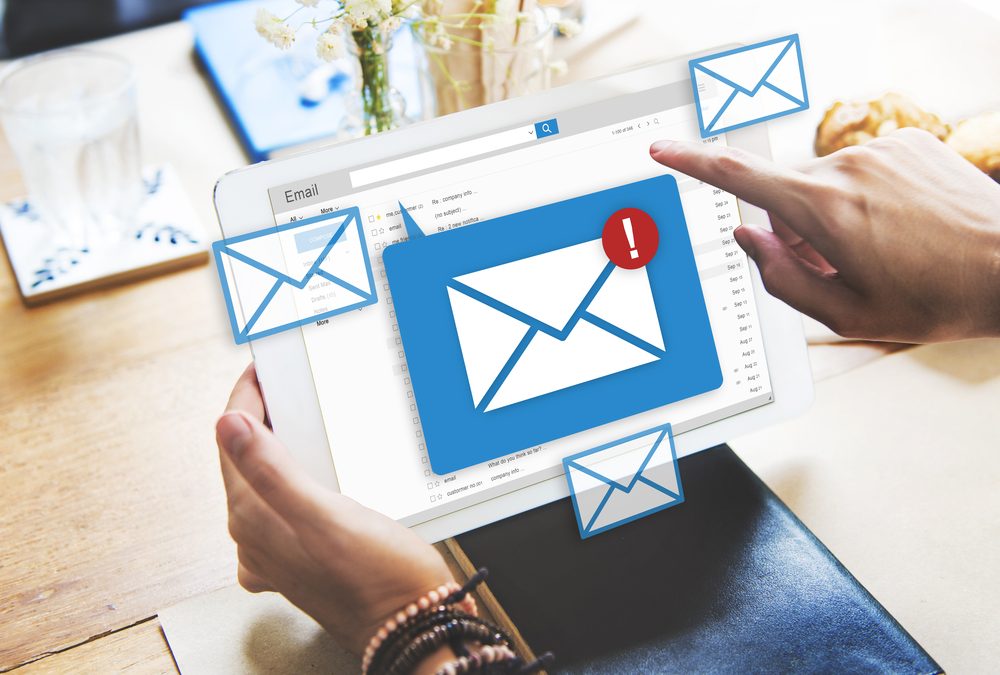The cutthroat inbox of your standard consumer roils with marketing messages, competitive subject lines, and scores of attention-seeking emails. With over 144 billion emails sent each and every day, email marketing remains one of the elite channels for business communication. So how does the signal separate itself from the noise?
To be sure, finding the key to a stand-out message is critical to your bottom line—whether that bottom line is cold, hard cash or community engagement or anything in between. What follows are eight inbox-tested email marketing strategies that successful senders have used to get their emails clicked.
1. Personalize your email without using the recipient’s name
No more “Dear [INSERT NAME HERE]”.
The practice of personalized email greetings is not nearly as effective as it may seem. In fact, research by Temple’s Fox School of Business suggests that this particular kind of personalization could be harmful.
A significant element of email marketing is relationship. Does a recipient trust you? Does a recipient even know who you are? When an email jumps the gun by forcing familiarity too soon, the personalization comes across as skeevy. Intimacy is earned in real life, and it would appear to be the same way with email. Take this example from my inbox; no one has called me lowercase kevan l lee in years.
Faking familiarity with the subscriber turns many wary email readers off. But this isn’t to say that all forms of personalization are off-limits. In fact, a particular brand of personalization can pay off big time: Sending email that acknowledges a subscriber’s individuality (e.g., purchase history or demographic).
2. The long and short of subject lines
When it comes to deciding how to craft that perfect subject line, there appears to be really only one area to avoid: the subject line of 60 to 70 characters. Marketers refer to this as the “dead zone” of subject length. According to research by Adestra, which tracked over 900 million emails for its report, there is no increase in either open rate or clickthroughs at this 60-to-70 character length of subject line.
Conversely, subject lines 70 characters and up tested to be most beneficial to engage readers in clicking through to the content, and subject lines 49 characters and below tested well with open rate.
In fact, Adestra found that subject lines fewer than 10 characters long had an open rate of 58%.
Short subjects came in vogue with the success of President Barack Obama’s email fundraising. He saw incredible engagement with subjects like “Hey” and “Wow.”

So the question becomes: Do you want to boost clicks (response) or opens (awareness)? Go long for clickthroughs; keep it short for opens.
Either way, a helpful email strategy is to squeeze out more words or cut back just a bit to avoid that 60 to 70 character dead zone.
3. 8:00 p.m. to midnight is the prime time to send your email
While many a quality email may be built during business hours, the ones with the best open rates aren’t being sent from 9 to 5. The top email strategy is to send at night.
In their quarterly email report for 2012’s fourth quarter, Experience Marketing Services found that the time of day that received the best open rate was 8:00 p.m. to midnight. This block not only performed better for open rate (a respectable 22 percent) but also for click through and sales.

The chart above shows that the 8:00 to midnight window is also the least used—a key factor in helping those late night emails outperform the rest. From Experian:
Inbox crowding and the deployment times of other marketers go hand-in-hand; if your email goes out when few others do, it stands a greater chance of getting noticed (so quick, start sending between 8:00 and midnight before everyone else catches on).
Optimal mailing for your customers’ needs will be up to you. Test, test, and test some more to find out how your customer ticks and when he/she opens email.
4. The best content is free content: Give something away
Consumers love a free lunch—or a free template.
In a study on their email list of 6,300 subscribers, Bluewire Media tested various types of content to see what led to the highest rates for opens and clicks. The winner was templates and tools, just the kind of freebies that email readers want.
5. Mobile opens accounts for 47 percent of all email opens
Mobile opens accounted for 47 percent of all email opens in June, according to numbers provided by email marketing firm Litmus. If your email list accounts for $100,000 in sales each month, could you afford to wave bye-bye to $44,000 just because your email looks funky on a mobile phone?
Design responsively to ensure that your email looks great no matter where it’s read. Here are some quick mobile design tips:
- Convert your email to a one column template for an easy mobile fix.
- Bump up the font size for improved readability on smart phones.
- Follow the iOS guideline of buttons at least 44 pixels wide by 44 pixels tall.
- Make the call-to-action obvious and easy to tap. Above the fold is preferable.
- Consider ergonomics. Many users tap and scroll with their thumb, so keep important tappable elements in the middle of the screen.
6. Email still reigns over Facebook and Twitter
Social media may be the young whippersnapper nipping at email’s heels, but the content king of the inbox still holds sway in social influence, according to a study by SocialTwist. Over an 18-month period, SocialTwist monitored 119 referral campaigns from leading brands and companies. The results showed a significant advantage to email’s ability to convert new customers compared to Facebook and Twitter.
Of the 300,000 referrals who became new customers, 50.8 percent were reached by email, compared to 26.8 percent for Twitter and 22 percent for Facebook.
7. Send email on the weekends
While not as overwhelming a winner as the 8:00 p.m. to midnight time of day, Saturday and Sunday did outperform their weekday counterparts in Experian’s study of day-of-week performance.
Again, the volume of email sent on the weekends is low, just like the volume for evening emails, which could help those messages stand out more. The margins for click through, open, and sales rates were not substantial, but in email marketing, every little bit counts.
8. Re-engage an inactive group of subscribers
Your list is huge. Great! The only problem is that two-thirds of it may be inactive.
Research has found that the average inactivity for a list is 63 percent, meaning that once someone joins they are less likely to ever follow-up with your follow-up emails. Email marketing firm Listrak goes so far as to identify the first 90 days as the window for turning a sign-up into a devotee (and they lay out a plan for doing so).
What’s to become of that inactive 63 percent? Re-engagement campaigns are an excellent place to start.
Recently, a re-engagement campaign from Digg wound up in my inbox. The subject was catchy (“This Is Not An Email From 2006”), and the content helpfully explained what the email was all about.
Source: https://buffer.com/resources/8-effective-email-strategies-backed-by-research


 MEWS is a full service web development Internet marketing company and technology integrator founded in 2003, by leading industry consultants with previous technology experience.MEWS is an Internet services and solutions company with interests in website development – Mobile applications– domain name registrations - web hosting.
MEWS is a full service web development Internet marketing company and technology integrator founded in 2003, by leading industry consultants with previous technology experience.MEWS is an Internet services and solutions company with interests in website development – Mobile applications– domain name registrations - web hosting.